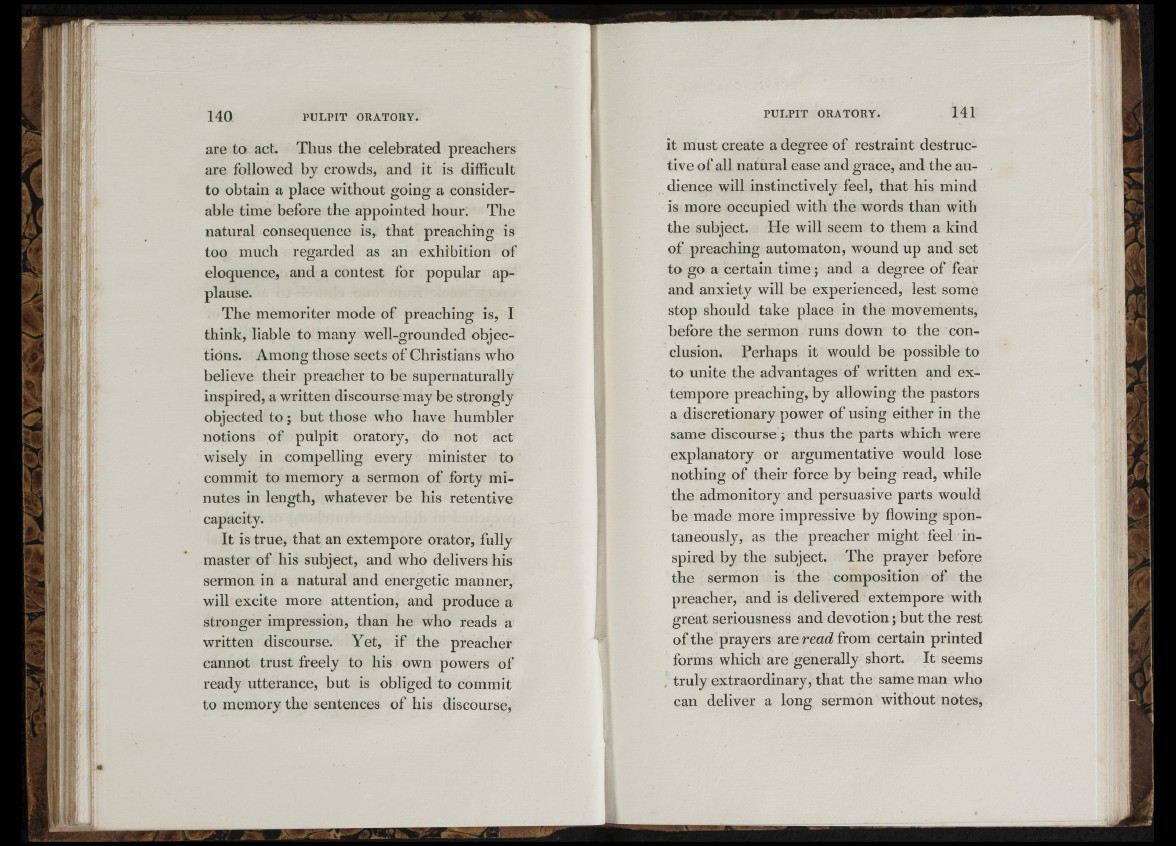
are to act. Thus the celebrated preachers
are followed by crowds, and it is difficult
to obtain a place without going a considerable
time before the appointed hour. The
natural consequence is, that preaching is
too much regarded as an exhibition of
eloquence, and a contest for popular applause.
The memoriter mode of preaching is, 1
think, liable to many well-grounded objections.
Among those sects of Christians who
believe their preacher to be supernaturally
inspired, a written discourse may be strongly
objected to ; but those who have humbler
notions of pulpit oratory, do not act
wisely in compelling every minister to
commit to memory a sermon o f forty minutes
in length, whatever be his retentive
capacity.
It is true, that an extempore orator, fully
master of his subject, and who delivers his
sermon in a natural and energetic manner,
will excite more attention, and produce a
stronger impression, than he who reads a
written discourse. Yet, if the preacher
cannot trust freely to his own powers of
ready utterance, but is obliged to commit
to memory the sentences of his discourse.
it must create a degree of restraint destructive
o f all natural ease and grace, and the audience
will instinctively feel, that his mind
is more occupied with the words than with
the subject. He will seem to them a kind
o f preaching automaton, wound up and set
to go a certain time ; and a degree of fear
and anxiety will be experienced, lest some
stop should take place in the movements,
before the sermon runs down to the conclusion.
Perhaps it would be possible to
to unite the advantages of written and extempore
preaching, by allowing the pastors
a discretionary power of using either in the
same discourse ; thus the parts which were
explanatory or argumentative would lose
nothing of their force by being read, while
the admonitory and persuasive parts would
be made more impressive by flowing spontaneously,
as the preacher might feel inspired
by the subject. The prayer before
the sermon is the composition of the
preacher, and is delivered extempore with
great seriousness and devotion ; but the rest
of the prayers are read from certain printed
forms which are generally short. It seems
truly extraordinary, that the same man who
can deliver a long sermon without notes.
If